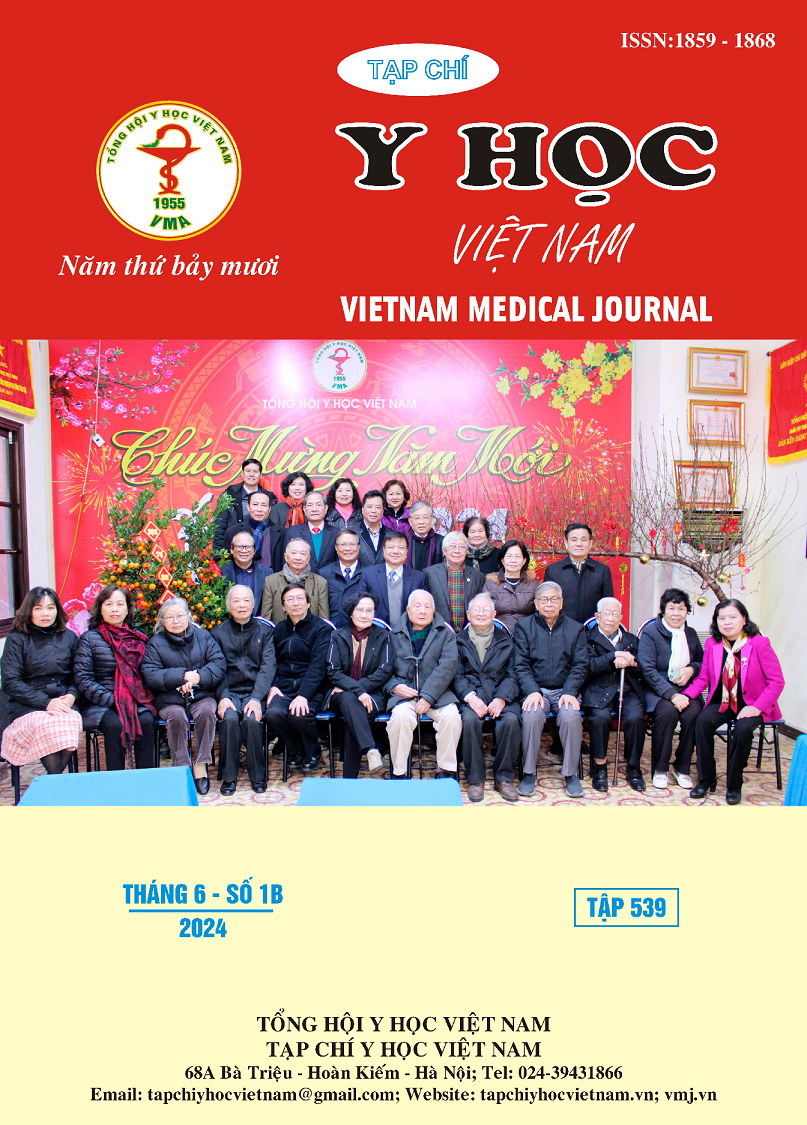GENOTYPE AND ALLELE RATIO OF THE APOB GENE rs1042034 SNP IN DYSLIPIDEMIA PATIENTS
Main Article Content
Abstract
Background: Dyslipidemia is the most important risk factor for atherosclerotic cardiovascular disease. The APOB gene polymorphism rs1042034 has been reported to be associated with alterations in blood lipid component levels, the risk of developing atherosclerotic cardiovascular disease, and the efficacy of lipid-lowering statin treatment. However, there are differences in the allele frequencies and genotype ratios of the APOB gene's rs1042034 polymorphism among populations. Therefore, identifying the characteristics of the APOB gene's rs1042034 polymorphism and its impact on changes in blood lipid components, as well as the risk of developing atherosclerotic cardiovascular disease in Vietnam, is extremely necessary. Study subjects and methodology: The study subjects were dyslipidemia patients attending the Bac Lieu General Hospital with increased LDL-c according to the 2003 NCEP-ATP III. DNA was extracted from peripheral blood, and the rs1042034 genotype of the APOB gene was determined by using Real-time PCR technique. Results: The majority of patients carried the C allele, accounting for 63%. Correspondingly, the genotype ratios were CC (47.7%), CT (31.4%), and TT (20.9%). There was no significant difference in the impact of APOB gene polymorphism rs1042034 on the blood lipid component levels. However, patients carrying the TT genotype had an increased risk of developing ischemic heart disease compared to the CC genotype (OR=13.08, 95%CI=1.31-130.85, p=0.015), and compared to the CC+CT genotype in a dominant model (OR=13.52 , 95% CI=1.47-124.67, p=0.0038) after adjustment. Conclusion: There was no significant difference in the impact of APOB gene polymorphism rs1042034 on the blood lipid component levels in dyslipidemia patients. The T allele and TT genotype of polymorphism rs1042034 were related to an increased risk of ischemic heart disease
Article Details
Keywords
: APOB gene, SNP, rs1942034, dyslipidemia.
References
2. Gu Q.L., Han Y., Lan Y.M. et al. Association between polymorphisms in the APOB gene and hyperlipidemia in the Chinese Yugur population. Braz J Med Biol Res. 2017; 50(11):e6613.
3. Kim D.S., Burt A.A., Ranchalis J.E., et al. Novel gene-by-environment interactions: APOB and NPC1L1 variants affect the relationship between dietary and total plasma cholesterol. J Lipid Res. 2013; 54(5):1512-1520.
4. Kounatidis D., Vallianou N.G., Poulaki A., et al. ApoB100 and Atherosclerosis: What's New in the 21st Century? Metabolites. 2024; 14(2):123.
5. Nedkoff L., Briffa T., Zemedikun D., Herrington S., Wright F.L. Global Trends in Atherosclerotic Cardiovascular Disease. Clin Ther. 2023; 45(11):1087-1091.
6. Wang Y.E., Kirschke C.P., Woodhouse L.R., et al. SNPs in apolipoproteins contribute to sex-dependent differences in blood lipids before and after a high-fat dietary challenge in healthy U.S. adults. BMC Nutr. 2022; 8(1):95.
7. Yu H., Pu T., Xu M., Gao W. Association between genetic variants in PCSK9/APOB/LDLR and premature myocardial infarction in Han Chinese. Eur Heart J. 2018; 39(Suppl1):140.
8. Zhou F., Guo T., Zhou L., Zhou Y., Yu D. Variants in the APOB gene was associated with Ischemic Stroke susceptibility in Chinese Han male population. Oncotarget. 2017; 9(2):2249-2254.


